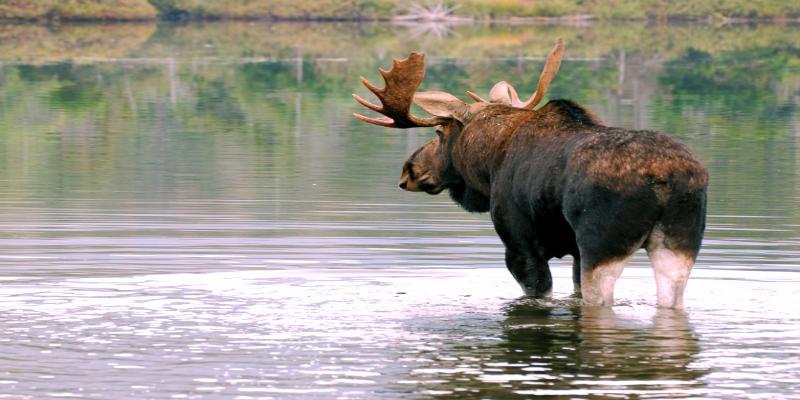Living with Wildlife

Wildlife need space to feel comfortable. Please stay an appropriate distance away from them. Any wild animal may become aggressive if it feels threatened, so ensure pets are on leash and under control at all times. Please do not feed any wildlife or birds; it can cause dependency on and aggression toward humans, as well as unnatural feeding patterns and overcrowding. When we respect the needs of wildlife, we can help them to live natural, balanced lives.
Encountering wildlife in Red Deer
To report a wildlife incident please contact Alberta Fish and Wildlife at 403-340-7052. Fish and Wildlife often refer injured or orphaned animals to the Medicine River Wildlife Centre for rehabilitation. If your call falls outside of office hours, please call Report a Poacher at 1-800-642-3800. The RAP line is available 24 hours a day and is toll-free across North America.
For general wildlife inquiries and information on living with wildlife please check out Kerry Wood Nature Centre 403-346-2010, Medicine River Wildlife Centre 403-754-3159, Alberta Fish and Wildlife 403-340-7052 and the Canadian Wildlife Federation.
To report an incident involving domestic cats and dogs please contact Alberta Animal Services at 403-347-2388.
Some wildlife to learn about include:
- Beavers: Beavers can be beneficial to an area, but there are ways to manage their presence on your property if they become a nuisance.
- Coyotes: There are a number of ways to minimize conflict with coyotes, even in urban centres where their population has grown.
- Crows and Magpies: Crows and magpies are important to Alberta's ecosystem, but they may be a nuisance on your property.
- Rabbits and Hares: Reducing access to food sources and shelter can minimize human conflict with rabbits and hares in Alberta.
- Skunks: Pest-control companies and your municipality can help you deal with skunk concerns on your property.
What can I do?
- Keep pet food inside, properly store garbage and clean-up any fallen fruit in your yard so opportunistic animals such as skunks and coyotes are not attracted to your yard.
- Keep pets within your control at all times to reduce the potential for negative wildlife encounters.
- Do not feed wildlife. Some of the negative impacts associated with feeding wildlife include: unnatural feeding patterns and competition, overcrowding and disease, dependency on humans, aggression towards humans, and damage to landscape.
- If you are feeding birds, make sure that you are feeding good quality seed and that you are cleaning in and around the feeders regularly. Make sure feeders are situated in areas that aren't accessible to deer and store bird seed in a predator proof container.
- Use preventative measures to stop birds from hitting windows. Install window decals, reduce window reflection with a screen or shade cloth, hanging items near your windows and/or move any feeders away from the windows.
- De-clutter your yard and predator proof those areas that could potentially become denning sites such as under sheds and porches.
- Cover your rain barrel to protect wildlife from falling in and to reduce potential mosquito habitat.
- Cover all openings such as eavestroughs, chimneys and vents to keep critters from entering unwanted places.
- Use protective wrap on trees to eliminate damage caused by rodents or deer.
- Reduce or eliminate yard maintenance chemicals such as synthetic fertilizers and pesticides as these substances can negatively impact wildlife and the ecosystems that they live in. Try organic and earth friendly solutions.